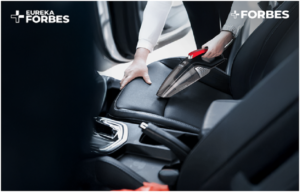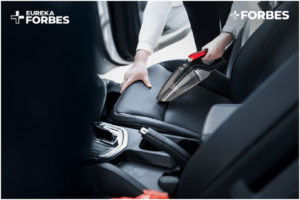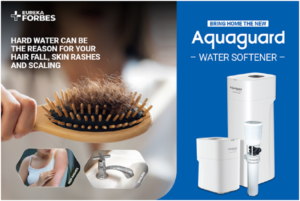In recent years, the effort to recycle has seen a significant increase compared to the past.
However, while many people include recycling in their home cleaning routines, some surveys have revealed that people aren’t aware of all the things around their house they can actually recycle.
Some items that are often overlooked and many people don’t know about include:
Which items around the house can be recycled?
Empty Prescription Bottles
Empty prescription bottles can often be found in homes that have members who take regular medications.
These seemingly innocuous containers are actually recyclable. When disposing of empty prescription bottles, it is best to rinse them out thoroughly and remove any labels or stickers from them before placing them in a designated recycling bin.
Additionally, many pharmacies offer free metal pill organisers or other reusable containers that can help cut down on waste even more.
Aluminium Foil
Aluminium foil is a staple of modern-day cooking, but many people don’t realise that it can be recycled.
When preparing aluminium foil for recycling, it should be free from any f and folded neatly into a ball or bundle so that it doesn’t get mixed up with other materials during collection or sorting at the recycling plant.
The more compact the foil is stored, the easier it will be to recycle without causing any contamination.
Old CDs and DVDs
These can often be recycled through specialised programs or mail-in services. The discs should be placed into protective sleeves or cases and then dropped off at a local recycling centre.
At the recycling centre, the discs will be broken down and separated into their component parts: polycarbonate plastic, aluminium foil or paper, and lacquer.
The plastic can then be repurposed in many ways, such as being used to make new CDs or DVDs; the aluminium can be melted down and reused, while the lacquer layer is made up of several chemicals which must be disposed of carefully.
Holiday Lights
Holiday lights are a popular way to decorate for the Christmas season, but many people don’t realise that these festive decorations can be recycled.
The process for recycling holiday lights varies depending on the type of bulb and material used. Incandescent bulbs should be taken to hazardous waste centres, while fluorescent bulbs should be taken to special recycling centres that accept them.
LED lights can usually be recycled via mail-in programs or drop-off centres.
Wine Corks
Wine corks are a surprisingly versatile item when it comes to recycling. Most wine corks can be recycled by popping them into a designated bin at local wineries, wine shops, and even some grocery stores.
Some companies have started collecting used corks for reuse in crafts and other projects. There are many cork recycling programs that turn used wine corks into new products.
Batteries
Simply putting batteries in the bin is very dangerous as these items are extremely hazardous. Many hardware stores have recycling programs for used batteries. You can commonly see battery and electronics recycling bins in these stores as well.
Ink Cartridges
Ink cartridges are a common and necessary item for printing documents, photos, and other media.
Many people don’t realise that these small items can be recycled when they are no longer usable. Depending on the type of cartridge, there are varying levels of complexity in recycling them properly.
Small Electronics
Many recycling centres will accept small electronics like old cell phones, chargers, and other accessories.
Sometimes, hardware and home department stores also have programs for recycling old or broken electronics, and all you have to do is bring your device to them.
Light Bulbs
Some hardware stores accept used light bulbs for recycling. It’s really important to dispose of compact fluorescent lightbulbs properly because they actually contain mercury, which can be very damaging to the environment. With these items, professional recycling is a must.
Clothing
Many cities have clothing recycling programs where you can drop off your old clothes in a special bin. Alternatively, many second-hand stores will also accept them.
Plastic, Metal and Wood Hangers
There are some dry cleaners that accept plastic hangers for recycling. Alternatively, you can also break down the item into its component parts and make sure each one goes into the correct recycling bin.
Carpets
Tons of carpets get up in landfills annually because of home renovations. However, some carpet manufacturers offer recycling programs for old carpeting.
Besides that, there are some non-profit organisations that can take care of your old carpet and reuse it sustainably.
Toilets, Tiles, Sinks and Bathtubs
Such porcelain products can be recycled instead of ending up in landfills. Before you throw your old ones away, check local recycling centres or independent organisations that can advise you on the best way and place to dispose of them.
Books
Donating your gently used books is one way to do this; many libraries and charity organisations accept book donations.
You can also sell your used books online or at flea markets – this is an excellent way to both make money and reduce waste.
So, don’t throw away those old dusty tomes!
Toothbrushes
These are some of the items we use on a daily basis, and naturally, we tend to throw away a large amount of them. When you buy a new one, consider recycling your old one by breaking it into its component parts or repurposing it.
Crayons
It’s a lesser-known fact, but it’s been estimated that more than 48,000 kg of crayons end up in landfills annually. However, there are organisations that can take your used and unwanted crayons for recycling and even turn them into new ones.
Mattresses
Some manufacturers offer recycling programs where they separate the wood, metal, foam and cloth from one another. This way, your old mattress won’t end up polluting in landfills.
Benefits of Recycling Unexpected Items
The benefits of recycling unexpected items are numerous:
• Reduce Waste. The recycling of waste helps to reduce landfill waste. You’re helping to create a cleaner environment for future generations.
- Money Savings. For recycling certain materials, many cities offer rebates or reduced rates on services such as trash collection.
- Organisation & Decluttering. Keeping your house organised and clutter-free is easy when you recycle. Having fewer things lying around makes it easier to find things quickly and keep a neat living space.
- Eco-Friendly Materials. When you recycle items, such as clothing or furniture, you create new products using recycled materials that have less of an impact on the environment.
- Local Economy Boosting. When people recycle their unwanted goods locally, it boosts the economy in their own area by providing jobs at local businesses that process recycled materials into new products or repurpose them for resale in secondhand markets.
Final Thoughts
Before throwing anything into your recycling bins, always check with your local recycling centre or waste management facility to see what specific items they accept for recycling.
If the item you want to recycle isn’t included, there may be another, better way to do it properly.
Additionally, while doing home cleaning, consider separating items for recycling – this will help reduce your waste and make it easier to properly dispose of items later.




